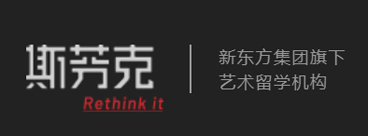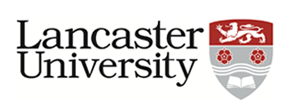埃默里大学六篇优秀申请文书&招生官点评分享(三)
文书三:写下你感兴趣的东西
Essay题目:Some students have a background, identity, interest, or talent so meaningful they believe their application would be incomplete without it. If this sounds like you, please share your story.
I found solace in poetry. Well, poetry recitation more precisely. Unconsciously, I have straddled a divide my whole life. My parents are immigrants, and when I started school, my parents and my peers made me aware of my differences. Unlike some of my peers, I had to act a certain way or prove I was capable of accomplishment to achieve greater opportunities. Naturally, I acclimated to my environment: I made friends with the white kids who hardly got in trouble, even though I looked different; I read and spoke exclusively English, even though Spanish came more naturally; at playtime, I would always make-believe that I married the princess, even though I would have liked just as much to have married a prince. I mastered the art of code-switching. In my mind, my vitality and my capacity to succeed in Not-Quite-Rural-But-Still-Agricultural Georgia hinged upon my presentation of palatability to my peers. Even still, I constantly obsess over my peers’ perceptions of me. Do I come off as too arrogant? Too overly-intellectual? Too “colorful”? Too silly and groundless? I work tirelessly to adjust for these possibilities.
Early on, I gravitated toward poetry as a medium for expression. Each day, I adjusted myself more and more to fit the expectations which infused my small southern town. In public, though outwardly approachable, I critically analyzed each move I made and word I spoke. In the literary arts, however, I could see things the way others saw them and identify myself with language that spoke directly to my experiences. In school, I was careful to never appear too Hispanic for fear of succumbing to a stereotype of being under-educated or uninformed; at home, never too flamboyant, lest my parents become suspicious that something is awry; always, never too outside-the-norm. In poetry though, I could become Oscar Wilde and Maya Angelou, taking on their plights and their triumphs. I could escape into Neruda’s wistfulness or Hughes’ sentimentality. I could, for a brief period, remove myself from my own reality, rife with incessant existential questioning, and place myself in another, divining from the diction and structure a sort of psychoanalysis to be applied to my conscientious understanding of human interaction.
When I was first assigned a poetry recitation in American Literature, I didn’t realize it would change my outlook forever. Eagerly, I seized the opportunity to express myself openly through poetry. Having shied away from theatre for fear of being categorized or negatively conceived, I readily accepted the challenge to explore my emotional and performative range. The recitation competition called Poetry Out Loud asks students to memorize poems and recite them in such a way which reveals their deeper meanings. I felt ready. I got to the regional-level competition during sophomore year, and my elation and excitement about the mere existence of this program resulted in my pursuant interest. At last, I found a medium, a wide-reaching community of support through which I might finally come to understand the purposes and effects of my struggles. Poetry allowed me to truly observe the wires in which we entangle ourselves and cemented the idea that I had for so long ignored: everyone shares struggles, be they large or small, and life is a quest to overcome them.
With junior year came the guidance of incredible and supportive mentors that led me to that stage in Washington, D.C. where I won third place nationally in the Poetry Out Loud recitation competition. I had never felt so accomplished and bursting with resolution. To myself, even if to no one else, I proclaimed resolutely that I am Latino, I am bisexual, I am unafraid, and I am intellectually charged with finding how best to help others who have faced doubts similar to those I had. Surrounded by the diversity and fiery passion of fellow solace-seekers, I began to undo the ties in which I’d confined myself.
招生官点评
选择论文主题的最大挑战之一是确定您要分享的内容与您希望读者了解您的内容之间的区别。在我超过 15 年大学申请文书的阅读中,他们中的大多数只是分享其他申请部分中提供的信息。这位申请人不仅分享了他们对诗歌日益增长的热爱,而且还帮助我们了解了他们所在世界的许多细微差别。通过这篇文章,特别是在第一段中,我们深入了解了他们在努力适应同龄人的同时,与文化和个人身份的斗争。通过讲述这些非常个人的经历,学生将纸上的文字转化为一种非常人性化的体验,让读者能够联系并洞察他们是谁。
除了分享个人经历和让读者与读者建立联系之外,还可以很好地利用他们的自然声音。太多次学生觉得需要添加大词并过度使用同义词库,而不是仅仅使用他们每天使用的语言。你的智力将通过你的成绩单和你的推荐来显示,所以没有必要使用你日常生活中所做的任何语言。这是一篇优秀的文章的原因在于它是真实的,显示出一定的脆弱性,并突出了萌芽的学术兴趣。最重要的是,我觉得这篇文章不是为委员会的招生顾问写的,而是一种自我表达的形式,突出了他们作为年轻人的个人旅程。













